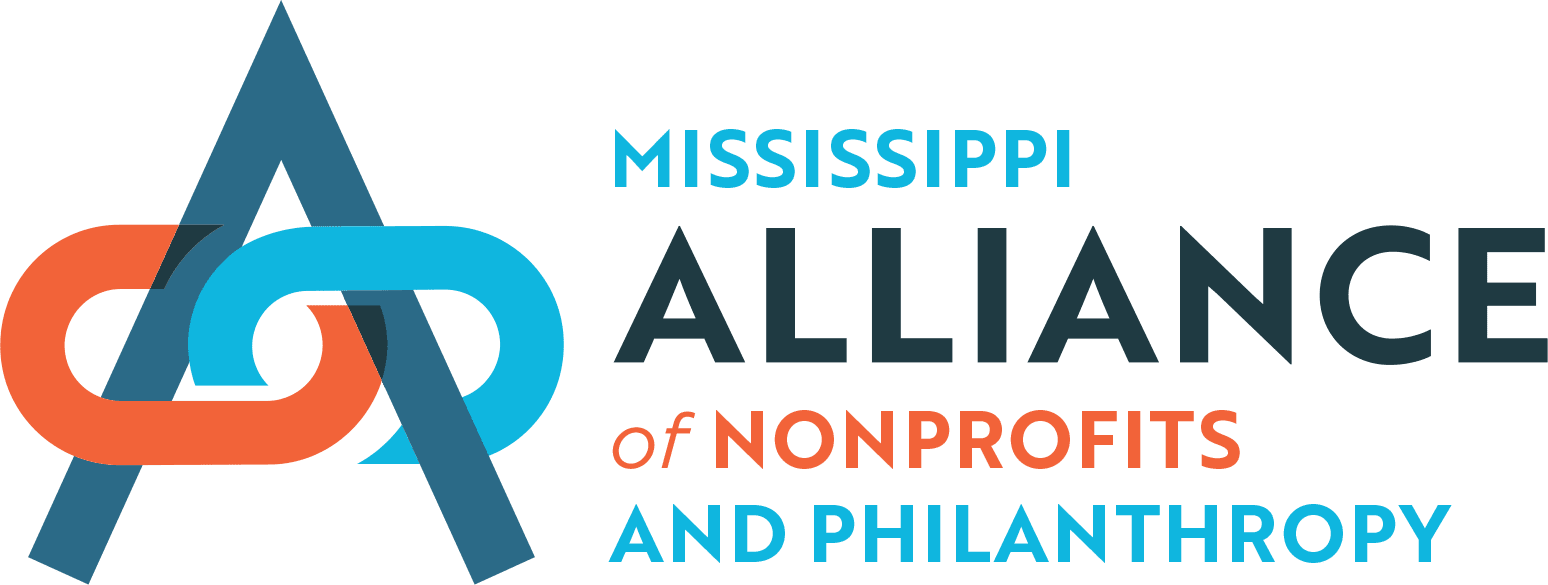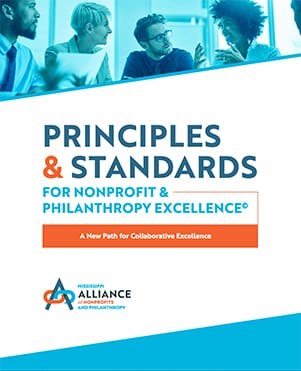Principles & Standards
For Nonprofit & Philanthropy Excellence
The 12 Accountability Principles
6. Human Resources & Professional Development
About
Employee Policies
1. Nonprofits and philanthropies must comply with all local, state and federal employment laws in hiring and employing staff. FS MS IRS
2. Nonprofits and philanthropies must comply with employment mandates, including FS MS IRS:
• payroll taxes,
• workers’ compensation,
• unemployment compensation,
• accurate designation of employees and contractors, and
• wage and hour laws.
3. Nonprofits and philanthropies should adopt a set of board-approved policies and procedures for managing employees. The board should annually review and document its overall compensation structure, using industry-based surveys of salaries and benefits and input from the executive director. The board should establish policies on employee benefits, which may include medical insurance; retirement plans; sick leave, maternity/paternity leave, vacation, and other paid time off; and other benefits as may be appropriate.
4. Nonprofits and philanthropies should provide a safe and healthy work environment for their employees. FS IRS
5. Nonprofits and philanthropies should establish a clear conflict of interest policy for employees. It should include disclosure of relationships and interested party transactions. FS IRS
6. Nonprofits and philanthropies should adopt procedures that allow employees the opportunity to rectify their grievances.
7. Nonprofits and philanthropies should adopt a whistleblower policy to protect personnel when they report violations of organizational policy or applicable laws. FS IRS
8. Nonprofits and philanthropies should establish confidentiality policies with accompanying forms signed by staff and volunteers.
9. Nonprofits and philanthropies should establish a code of ethics for staff and volunteers to sign and adhere to in all dealings.
10. Nonprofits and philanthropies should establish both employee and volunteer records retention policies and procedures that are consistent with applicable laws and best industry practices. FS IRS
Recruitment & Retention
11. Nonprofits and philanthropies should employ (paid or unpaid) skilled individuals who are suitable for the positions they occupy and committed to the goals, values and objectives of the organization.
12. Nonprofits and philanthropies should conduct background checks and, when appropriate, drug tests on employees and volunteers (including individual board members) performed at time of hire and throughout employment or service as necessary. MS IRS
13. Nonprofits and philanthropies should create a culture of transparency and open communication where internal information is shared as appropriate. This also includes being open to input from personnel regarding the organization’s activities and results on a continual basis. FS
14. Organizations should provide staff and volunteers with clear, current job descriptions and the tools they need to produce quality work.
15. Organizations should define their compensation philosophy, balancing internal equity with market-based and livable compensation for all employees.
16. Nonprofits and philanthropies should have a system in place for the succession of employees and volunteers, most notably for the executive director and key board leadership.
17. Nonprofits and philanthropies should establish a new employee orientation and training as appropriate to the position.
18. When employees depart, organizations should conduct exit interviews to learn from the employee’s employment experience.
19. When employees are terminated, nonprofits and philanthropies should provide adequate notice and information about benefit continuation, unemployment compensation, references and job placement assistance when possible.
Diversity & Inclusion
20. Nonprofits and philanthropies should establish and abide by a broad and encompassing equal opportunity employment policy. FS IRS
21. Nonprofits and philanthropies should strive toward employing personnel and volunteers who reflect the diversity of the community, as appropriate for program effectiveness.
Training & Development
22. The staff of a charitable organization should receive written annual performance evaluations and ongoing performance-related feedback. FS
23. Nonprofits and philanthropies should support the education and development of personnel and should provide them with opportunities for growth and advancement through adequate ongoing training related to their position. FS

